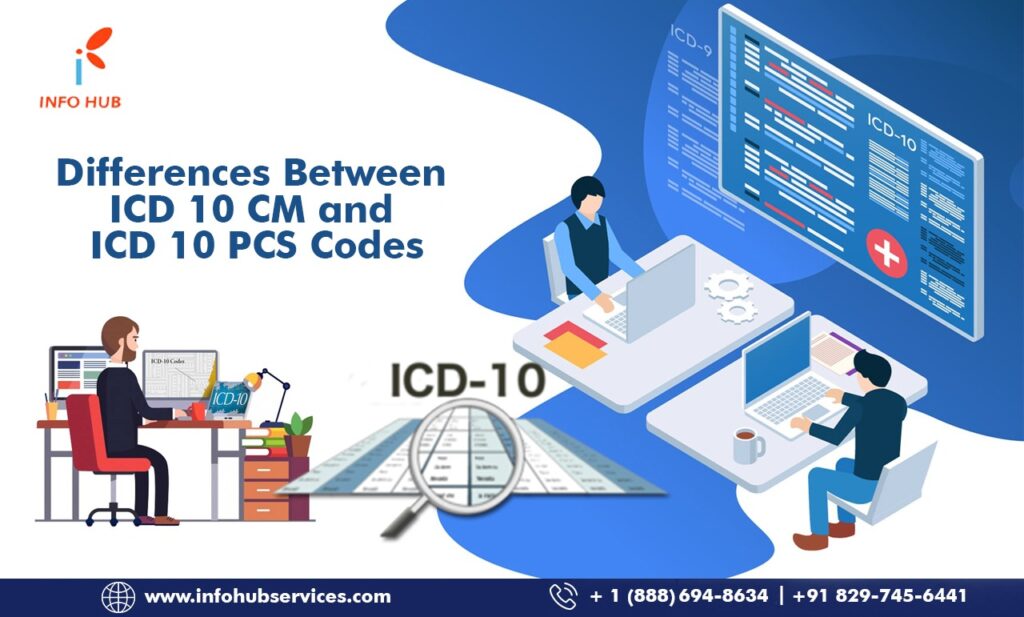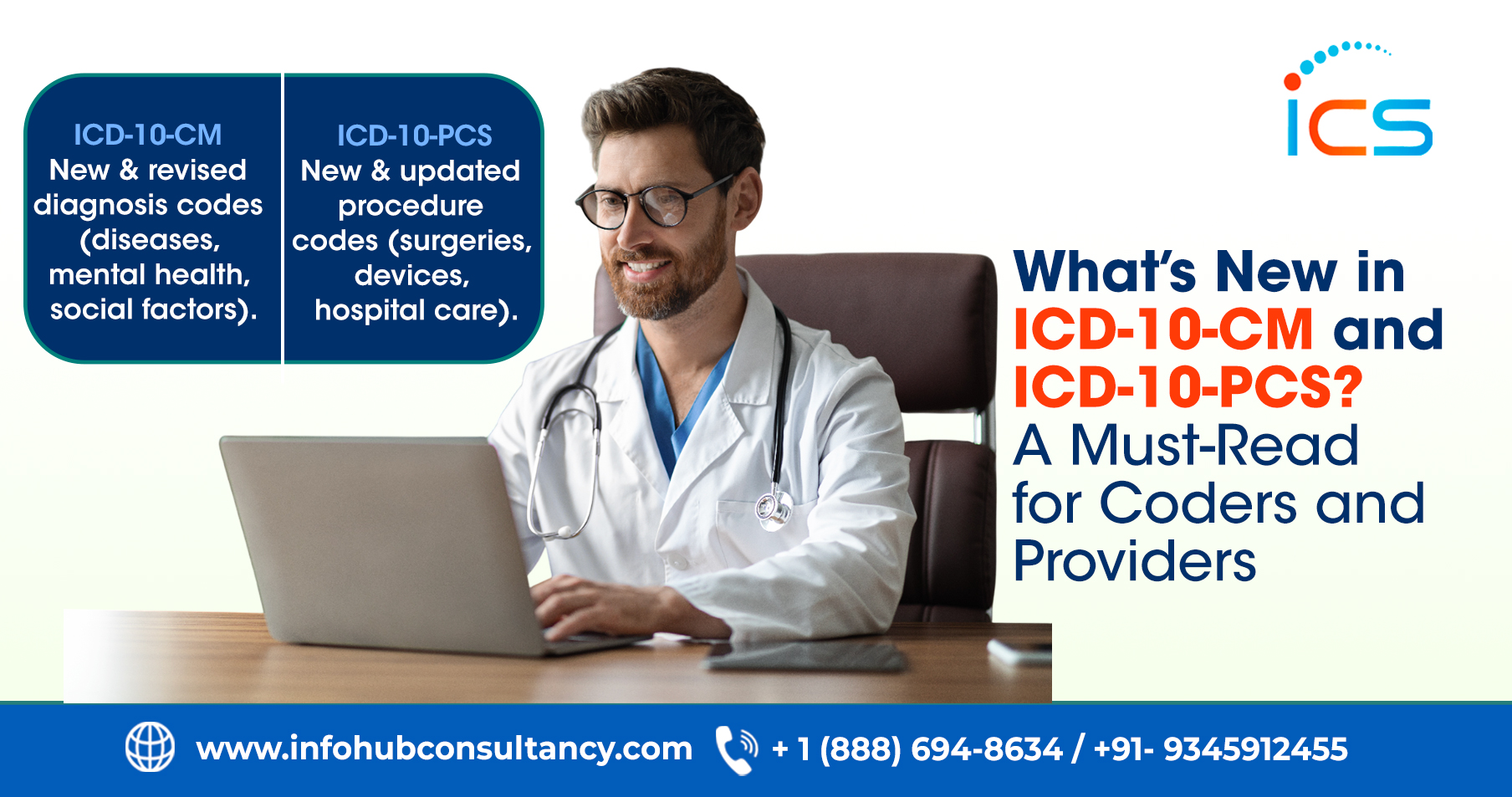Did you know? The International Classification of Diseases or ICD is being used by healthcare practices globally to classify, collect and present different healthcare statistics, including mortality. One of the primary areas in healthcare that use the ICD is the medical billing and coding sectors.
The level of specificity in ICD codes helps the healthcare providers to reduce billing errors and confusion, resulting in fewer rejected claims. It also reduces the number of claims denied due to “lack of medical necessity.” The more efficient a claims submission process is, the faster you will be paid.
All this ends up with defining ICD 10 CM as the Clinical Modification whereas ICD 10 PCS as a set of Procedure Coding Systems followed for providing medical services to inpatients. However, there is much more to this.
ICD 10 CM vs. ICD 10 PCS Codes
While coding your healthcare operations, have you ever wondered about the difference between the ICD 10, ICD 10 CM, and ICD 10 PCS?
It is important to note that there is as such no major difference between the ICD 10 and ICD 10 CM when it comes to medical billing and coding. But some difference lies when one codes under ICD 10 CM and ICD 10 PCS.
As per the medical coding system, ICD 10 CM is used for different diagnostic coding in all healthcare services and establishments across the U.S. On the other hand, the ICD 10 PCS is a set of codes used for inpatient coding in hospital settings. However, what sets ICD 10 PCS apart from ICD 10 CM is the former offers more specific and accurate coding for the services rendered to the inpatients for medical billing.
Let’s have a look at what else accounts for ICD 10 CM, and ICD 10 PCS:
1. ICD 10 CM:
These are the set of codes in a diagnosis classification implemented across the U.S. by the Centres for Disease and Prevention. It must be used for every healthcare treatment setting, mainly in outpatient and clinical settings in the U.S. One must remember that diagnosis coding for ICD 10 CM is done using 3-7 alpha and numeric digits. In fact, it has full coding titles with an almost similar format to that of ICD 9 CM. Furthermore, there are 68,000 codes for healthcare service providers to select from in ICD 10 CM.
2. ICD-10-PCS:
This procedure classification system has been developed by the Centres for Medicare and Medicaid Services (CMS) to be used for every hospital setting where an individual is provided an inpatient service. When using the ICD 10 PCS coding, the healthcare service provider must remember that it can only be used in inpatient hospital settings. The coding system in ICD 10 PCS has seven alpha or numeric digits.
In fact, this is one of the core differences that can decide acceptance or rejection of the claims. It differs from ICD 9 CM which uses three or four numeric digits, while ICD 10 CM uses 3 to 7 alpha and numeric digits. Furthermore, the codes in ICD 10 PCS are more detailed and cover a wider spectrum of services, which is quite evident from the fact that it has 87,000 codes available.
Another important point to be taken care of is that there are 17 sections within the ICD 10 PCS related to the different types of procedures performed on an inpatient in a hospital setting in the U.S. These sections include:
- Administration
- Chiropractic
- Extracorporeal assistance and performance
- Extracorporeal therapies
- Imaging
- Laboratory
- Obstetrics
- Measurement and monitoring
- Medical and Surgical
- Mental health
- Nuclear medicine
- Placement
- Physical health rehabilitation and diagnostic audiology
- Radiation oncology
- Substance abuse treatment
- Miscellaneous
Why do you need Professional Coding and Billing Service Providers for ICD 10 CM and ICD 10 PCS?
With HIPAA rules in place and the ever-changing coding rules and regulations, keeping up with the ICD 10 CM is quite challenging. Even the ICD 10 PCS can be extremely tricky, with more than eighty thousand codes to select from.
Furthermore, ICD 10 CM is a set of coding rules that would require the provision of additional information given within the coding system to the insurance companies and the four organizations that have approved the ICD 10 PCS guidelines. However, the instructions given in the coding system of ICD 10 PCS are to be given priority over the guidelines set in the ICD 10 CM.
Undoubtedly, the guidelines are set to help the coders and the healthcare providers with the procedures to be reported. It also gives additional instruction on the coding sequences such as indexes, tables, and definitions used in ICD 10 PCS.
When there are so many combinations and rules to be followed by the coding and the billing staff, staying on the right track can be tricky. However, when a healthcare service provider partners with an experienced medical coding and billing company such as Info Hub Consultancy Services (ICS), they can assure of fewer claim denials and rejections.
Why Info Hub Consultancy Services for ICD 10 CM and ICD 10 PCS?
The ICS know about the latest coding updates and have trained professionals who can handle the medical coding and billing process effectively. With the latest medical billing software and HIPAA-approved technology, ICS can ensure proper revenue cycle management where the coding is done properly and correctly for every claim to be successful.

 Medical Billing
Medical Billing  5 mins read
5 mins read 










